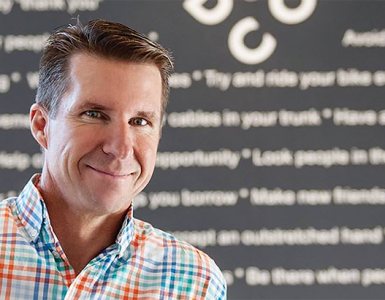Work: Allowing elderly people to continue working helps keep old age at bay
By Isaac Moledi
The debates are raging over whether employees in South Africa could extend the corporate age of retirement and work beyond the age of 65.
This is because the country does not have the law that specifically states the age at which an employee must retire. In addition, life expectancy continues to rise as the country’s population numbers break the 55 million mark although empirical data suggests average life expectancy in South Africa to have declined by only 0.6 of a year in 2020.
In South Africa, the usual retirement age is between 60 and 65 and experts say an employee cannot be forced to retire unless their employment contract specifies the retirement age or there is a company policy that sets the official age for ‘riding your horse into the sunset’. The Basic Conditions of Employment Act (75 of 1997) also does not prescribe an age for retirement nor give guidelines for determining the number.
In the matter between Rubin Sportswear v SA Clothing & Textile Workers Union and others (2004) for example, the Labour Appeal Court pointed out that Section 187(1)(b) of the Labour Relations Act 66 of 1995 (LRA) provides two scenarios where an employer can justify the dismissal of an employee on the grounds of retirement age. One is an agreed retirement age; the other is a normal retirement age. This means that an employee can work for as long as he or she is able to unless there is an agreed retirement age.
In another case involving ARB Electrical Wholesalers (Pty) Ltd v Hibbert (2015), the court confirmed that the dismissal of an employee without an agreed retirement age would constitute an automatically unfair dismissal and that it could also be regarded as an act of unfair discrimination based on age in terms of section six of the Employment Equity Act 55 of 1998 (that is, ageism).
The court concluded that if there is no agreement in place, the retirement age or date must be agreed to between the employer and employee. It is recommended that such an agreement should be in writing to avoid possible claims of discrimination upon the termination of the employment relationship.
Then, when is the right time to retire and how would this affect South Africa’s ever increasing unemployment rate? Experts believe that continuing to work is one of the factors that help keep old age at bay. A German study found that the cognitive decline associated with ageing is lessened in people who carry on working past normal retirement age.
Living lives of purpose and usefulness also boosts their self confidence. Ishani Khoosal-Kala of 10X Investments also says that since South Africa has no official retirement age, workers get pushed out by 65, although for some, that is too young.
He says according to the 10X Investments Retirement Reality Report 2021 (RRR21), a third of retirees already worked beyond 65 years. Of those still employed, 30% hoped to retire beyond 70, or not at all. “Perhaps that should become the standard,” Khoosal-Kala says.
According to him, beyond needing a reason to get up in the morning, for most of the people work is an economic necessity. “Even among those South Africans who are saving for retirement, 64% believe they will need to earn additional income thereafter to make ends meet. Delaying retirement would boost their assets (more years of saving and investing) while shrinking their liability (fewer pension years to fund)”.
Historically, people worked as long as they could, as many still do today if they are selfemployed. “The world’s first pension scheme, introduced in Germany in 1889, only kicked in at 70.
It’s not something that employers would endorse, though, at least not universally,” says Khoosal – Kala. According to him, people become less productive (but no less expensive) as they age. He believes that older workers are less adept at absorbing new data and adjusting to new technologies, but they bring wisdom and experience to the table. “In business, this trade-off is made selectively, a form of discrimination that allows older people to stay on in positions that rate judgement over mental agility and vigour. If you are working on the factory floor, down a mine or in a call centre, you probably won’t be working past 65.If you are the finance director or CEO, you might be.”
“Having the same retirement age as 100 years ago seems out of time, given that life expectancy has increased by three years per decade since the 1940’s. If that trend holds, someone born today could expect to live to 108. Already, 80% of respondents in the 10X survey expect to survive past 80,” says Khoosal-Kala, arguing that that probably won’t happen though.
“We’re not living much longer than 100. It’s just that more of us are growing old. In other words, we are seeing higher life expectancies but not longer lifespans.”
Higher life expectancies are due to lower child mortality rates, fewer wars, better medicines and medical care and safer jobs, not evolutionary gains. Most of the improvements have already been incorporated in today’s life expectancies, which is why they are starting to plateau in the developed world, says Khoosal – Kala.
“We can’t expect life expectancies to continue to increase by three years per decade from here onwards.” In South Africa, life expectancy has increased from 56 in 2000 to 65 today, according to data from the World Health Organisation; life expectancy for a 60-year-old has increased by only three years, from 76 to 79.
“That doesn’t justify raising the corporate retirement age for those in a defined contribution plan, which targets just their liability. That liability does not increase because more people get old, the way it does in a defined benefit scheme, where more people reaching, say, 80 increases the fund’s obligations. Hence the push by some European public pension systems to raise retirement age to 67.
Khoosal- Kala says a stronger case can be made off increasing health spans. “Healthier living and better medical care allows some people to work longer, but here, too, there will be inequalities because not all can afford the same level of care or lifestyle.
“Alas, unlike in Europe and the US, our economy and demographics won’t support it. We have the highest unemployment rate in the world, and a bottom-heavy population pyramid.”
According to Khoosal-Kala, the ratio of people pushing into the workforce (15-25) versus those eyeing retirement (55-64) was 2.4 in 2020, high compared to developed nations, which have a ratio of around 1. “This makes it difficult for older people to keep their jobs, let alone prolong them.” He says 29% of the retirees who participated in RRR21 said they had been forced out early.
“Staying economically active after 65 is one way to mitigate the financial pressure of an underfunded pension and there are no laws to stop anyone doing that. But allowing just a select few to carry on in the formal workplace threatens more inequality, whereas a universal policy seems unrealistic in the context of our country’s economic and population dynamics.”
He believes that the issue must be addressed upfront by saving early, saving more, investing appropriately and preserving funds. “These simple rules will deliver a more comfortable retirement for all, without having to pray for changing policies or staying employable past 65.’’
Published on the 51th Edition. Get E-Copy





























